FCA RESEARCH – POSSIBILITY
FOR EVIDENCE BUILDING
FCARESEARCH–POSSIBILITYFOREVIDENCEBUILDING
FCA is an active actor in research. Through research we gain evidence of the impact and the effectiveness of our work. Research plays an important part in our country programmes and facilitates the development of our global programme.
We aim to find practical solutions to both local and global level challenges in our three thematic areas: Right to Quality Education, Right to Peace, and Right to Livelihood. Applied research methods that involve the communities we are working with and allow them to participate in the research process are prioritised. We encourage research with a critical approach that empowers people, actively seeks possibilities to break the silence in the societies and helps marginalised people to get their voice heard.
FCA Research collaborates with universities, research institutes and other actors in the research field. If you are a Master student or a PhD candidate, you are welcome to think of FCA as a possible partner for your research. FCA Research supports research initiatives by offering consultation and contacts.
Before contacting FCA, we advice you to go through the following steps:
- Familiarise yourself with FCA Global Strategy, our work in the partner countries and the Guiding Principles and Standards, and consider whether your research topic is relevant for FCA.
- Discuss the topic with your academic supervisor and evaluate if FCA would be a relevant partner for your work.
- If you think that research cooperation with FCA would benefit both you and FCA, express your interest through the form “Expression of interest for FCA Research” at the bottom of this page. Please fill out the form and attach all the required documents. Please note that we do not review Expressions of interest forms that are inadequately filled, or proposals sent by email. Your express of interest should be sent at least 3 months before you intend to start your research.
- Once you have submitted the Expression of interest form, you will receive an automatic confirmation. Next, your application will be reviewed by the FCA Research Coordinator. If your research idea gets accepted, you will be asked to send a full proposal with supporting documents. In case your application is rejected, you will be notified and an explanation for refusal will be provided.
- The full proposal will be reviewed by the FCA Research Coordinator and the Coordination group. You will be linked with the relevant country programme or thematic representative, who will continue to support your work and brainstorm the practicalities. There will be a written agreement, which explains the roles and responsibilities of each party.
- After you conclude your work, your research, or have a link to it, it can be published on the FCA website and social media channels.
To manage research initiatives, FCA Research Coordination Group consisting of six experts has been set up. FCA Research Coordinator facilitates the group. Research proposals sent from outside FCA are pre-selected by the Research Coordinator, and the Research Coordination group makes the final selection.
Watch the video below:
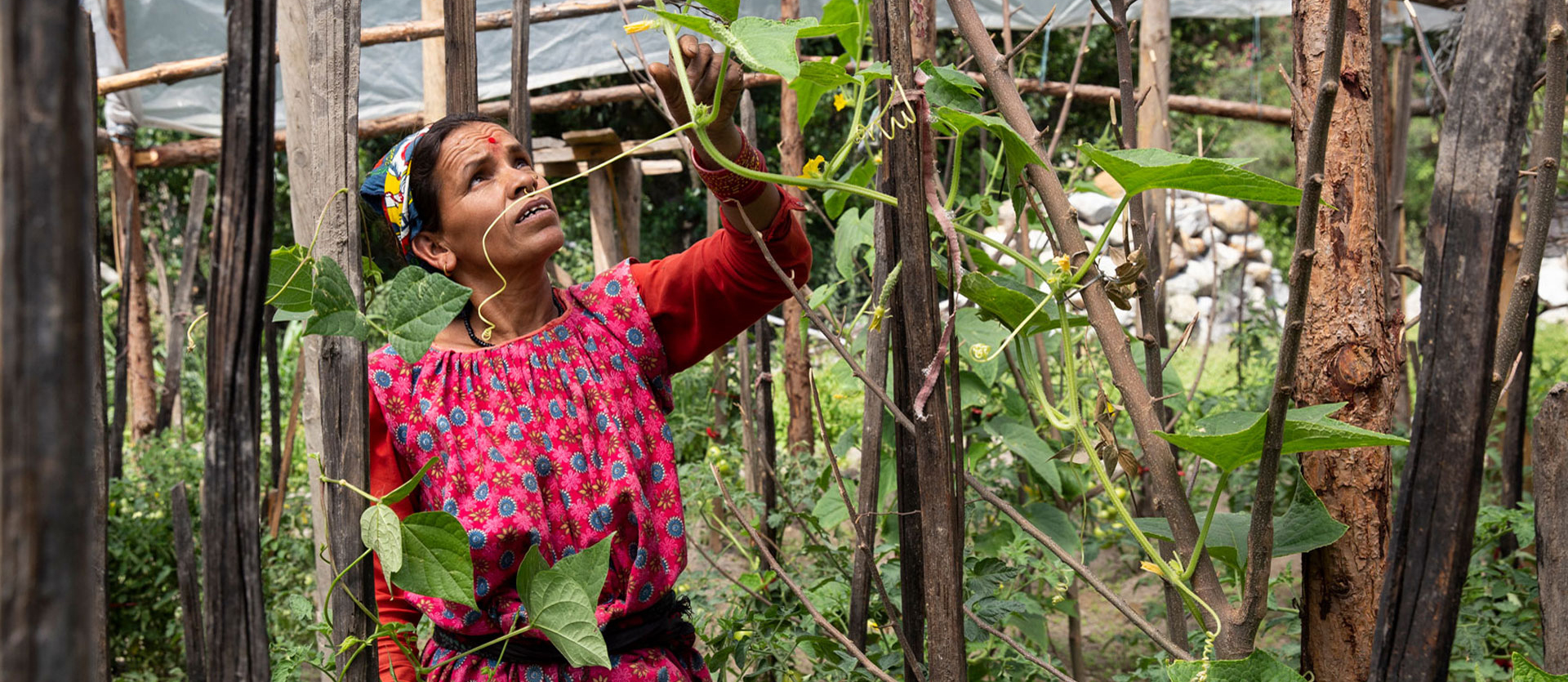
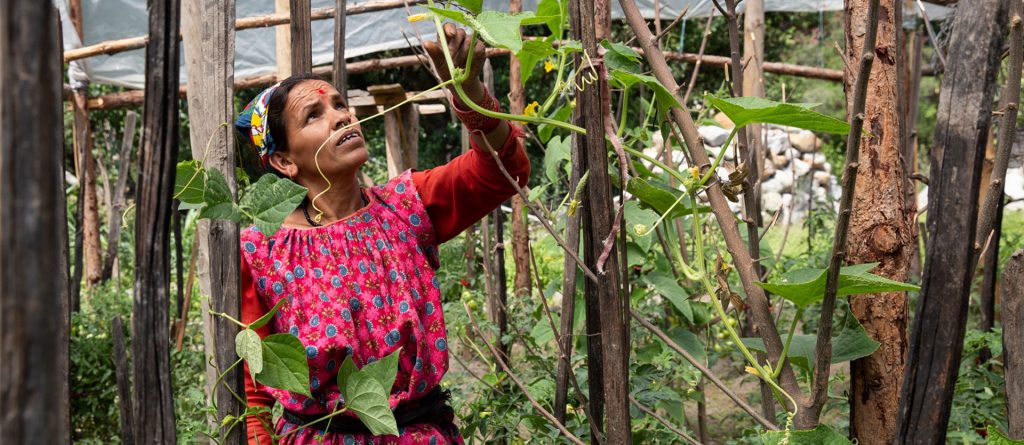
Prior research by theme
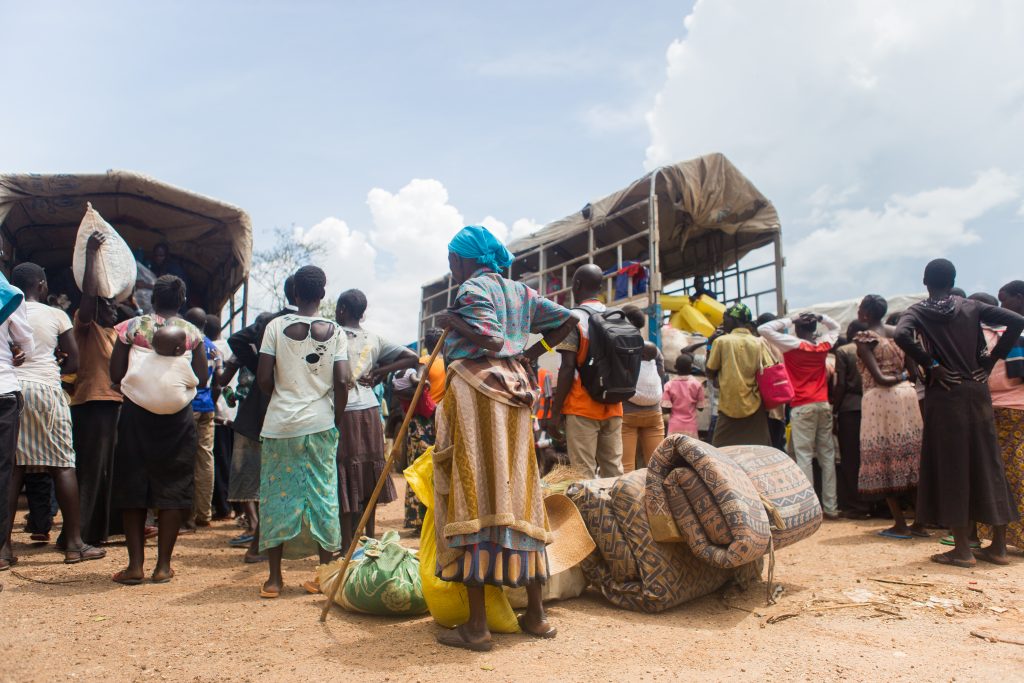
Karoliina Ahtiainen: Knowledge management in humanitarian operations
This study focused on FCA as an organization and its knowledge management regarding humanitarian operations. It analysed how the organization values knowledge, what competences experts involved in humanitarian operations need to have, and how the organization’s knowledge management process is built. The study argued that an efficient knowledge management system provides important tools for future operations and that knowledge management supports the development of competences. The data were collected through analysing FCA’s documentation and interviewing FCA staff. The findings of the study showed that FCA has a functioning system for knowledge management but there is room for improvement in the quality of data, in capturing tacit knowledge, in the allocation of resources, and in the follow-up of evaluations and lessons learnt.
Lomole, Seme: The Paradoxes in Contemporary Refugee Protection Models; A Critical Study of Uganda’s ‘Open-Door’ Refugee Policies and their Socio-Economic Impact on both the Refugees and the Host Community
A case study on Ugandan refugee policy and its effects on host communities and refugees. The study offers valuable insights into the Ugandan refugee policy and the underlying reasons behind the internationally recognized “open policy” that grants refugees the right to work, live and move freely in Uganda, and access the same services as Ugandan nationals. It critically discusses the socio-economic implications of the refugee policy as well as the environmental and social effects of the refugee influx. The data of the study were obtained through document analysis and a substantive number of key-informant interviews and interviews of refugees. The study helps to understand the complexity of the refugee situation in the Horn of Africa. FCA has been operating in the Ugandan refugee settlements for years and therefore, the study is of special interest to FCA.
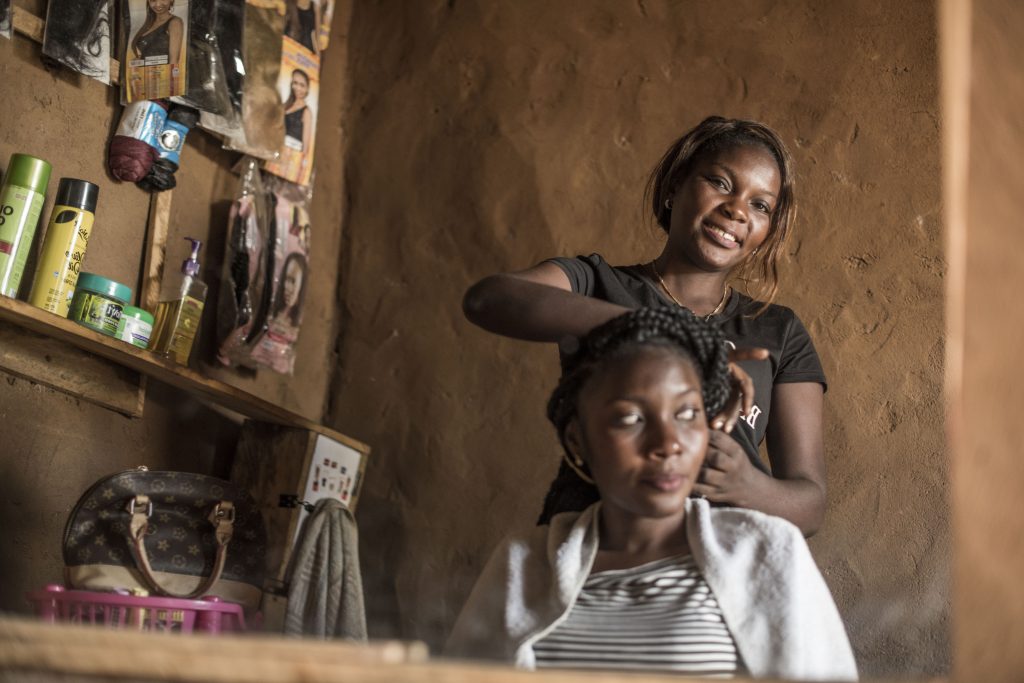
Tinja Huhtala: A Year of Isolation, Uncertainty, and Changes: Experiences and well-being of teachers from the time of COVID-19 pandemic in Cox’s Bazar, Bangladesh
The topic of teacher well-being is an important one for many reasons and for both, schools, and the whole society. It is a largely researched topic, but under researched in fragile settings. Therefore, this thesis addresses the research gap and studies the well-being of teachers in Cox’s Bazar refugee settlement, Bangladesh, from the time of COVID-19 pandemic.
The pandemic caused schools to close and changed many things not only for the students but also for the teachers. The teacher participants of this study were all working for a non-governmental organization (NGO) in an education program at the time of research. The first objective of this research was to explore these teachers’ understanding of well-being and their experiences on how COVID-19 affected on it. The second objective was to understand the teachers’ experiences of the support provided by their employer NGOs and how they feel the support affected their well-being, and what on the other hand the NGOs could have done better to support them. The research was conducted in collaboration with NGOs Finn Church Aid (FCA) and Dan Church Aid (DCA), who had a shared project in refugee settlement in Cox’s Bazar, Bangladesh, implemented by DCA.
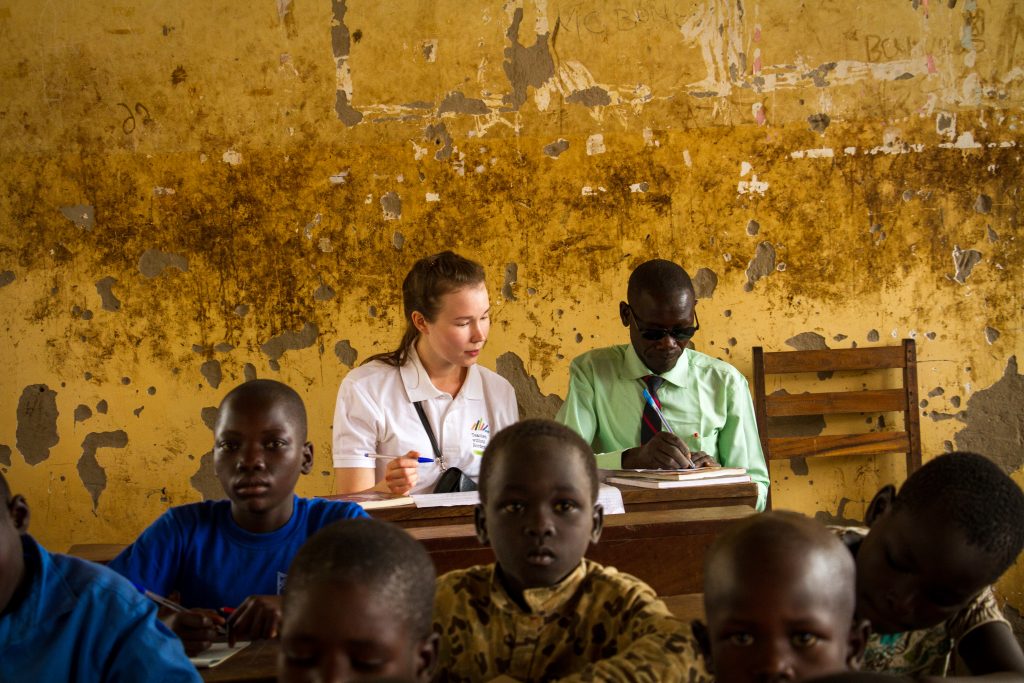
Tanskanen, Katariina: Kansainvälinen vapaaehtoistyö opettajan ammatillisen kasvun välineenä
IN FINNISH ONLY / Tutkimus opettajien vapaaehtoisen kehitysyhteistyökokemuksen ja ammatillisen kasvun yhteydestä. Tutkimuksen tarkoituksena on selvittää, millaista ammatillista kasvua vapaaehtoisjaksolla tapahtui, millä tavoin opettajien kulttuurienväliset kompetenssit kehittyivät sekä millä tavoin opettajat kokivat kehittyneensä globaalikasvattajina. Aineisto on kerätty sähköisen kyselylomakkeen ja teemahaastattelun avulla. Tutkimusta varten on haastateltu kahdeksaa Opettajat ilman rajoja (OIR) -verkoston kautta kansainvälisessä vapaaehtoistyössä ollutta opettajaa. Tulosten mukaan vapaaehtoistyökokemuksella oli selkeä yhteys opettajien ammatilliseen kasvuun ja tutkimuksen perusteella voidaan myös päätellä, että vapaaehtoistyökokemuksen myötä tapahtunut kasvu lisäsi opettajien itsearvostusta ammatillisessa mielessä sekä kokemusta työn mielekkyydestä ja rohkaisi heitä edelleen ottamaan vastaan uusia haasteita työelämässä. Lisäksi vapaaehtoistyökokemuksen myötä opettajat saivat uusia taitoja ja valmiuksia omaan työarkeensa..
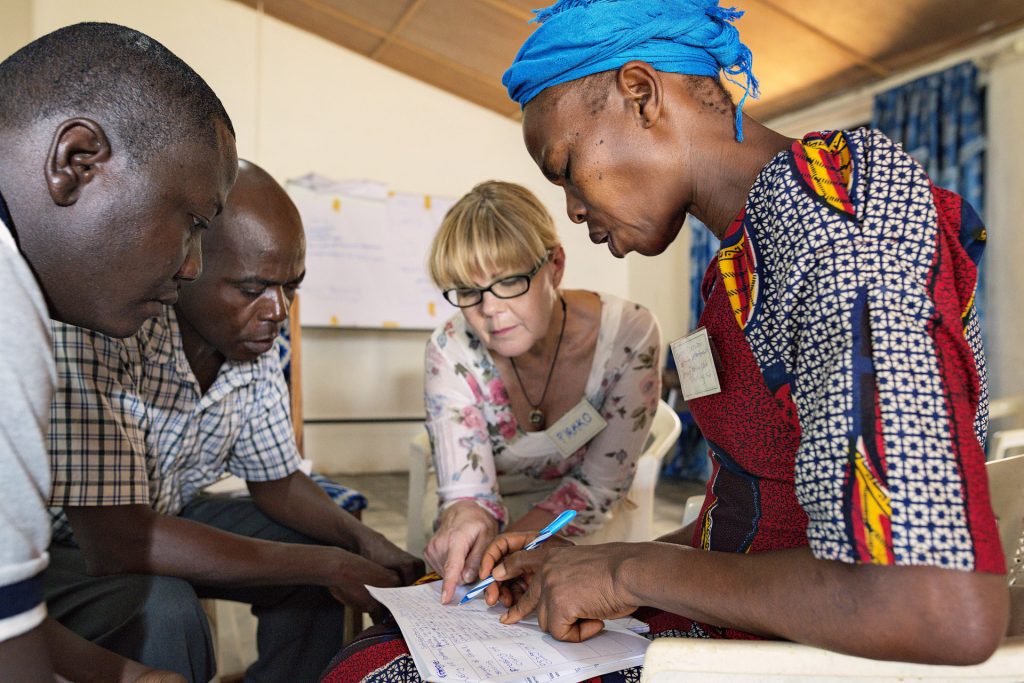
Saarivuori, Tea: Experiences and Well-being of Ugandan Teachers Working in a Refugee Settlement During the COVID-19 School Closure
The aim of this study was to find out how the Ugandan COVID-19 school closure affected the well-being of Ugandan teachers working in a refugee settlement. Teacher well-being has been recognised as a major driver of quality education and it has received a lot of attention from researchers, but the well-being of teachers working in low-resource, crisis and conflict-affected settings is an under-researched topic, and there is little research on teaching during the COVID-19 school closures in contexts where online learning was not feasible. This study concentrated on the challenges, successes, and stressors that the Ugandan teachers working in a refugee settlement experienced during the first year of the school closure, and whether their job motivation changed during that time. The data for the study were collected from 20 teachers through a questionnaire with open questions.
Insufficient income was the most prominent stress factor for the teachers. Many teachers had found additional sources of income to have their basic needs met, and financial distress was the main reason for decreased job motivation during the school closure. Difficult working conditions during the school closure, especially long distances and lack of teaching materials, affected the teachers’ job satisfaction negatively. Factors that supported the studied teachers’ well-being were respect and recognition from the community, relationships with the learners and their families, and successes in carrying out responsibilities, such as raising COVID-19 awareness in the communities and facilitating learning.
Korenius, Suvi: Gender sensitive education – A literature review of relevant toolkits for secondary school teachers in Eritrea
This study is concerned with gender sensitive education in low and middle income countries. At the time of the study (2018) FCA had a project called Promoting Gender Equality in Eritrea through Teacher Education and the study was linked to the project. The aim of the study was to identify and evaluate gender sensitive education toolkits found online.
The method of the study was a systematic literature review. The data consisted of existing gender sensitive toolkits and they were analysed thematically The themes that were found to be essential for secondary school teachers in Eritrea developing their pedagogy towards gender sensitivity were gender concepts, gender sensitive pedagogy, health, and community, with several subthemes each. The study produced practical recommendations for the development of a gender sensitive education toolkit for Finn Church Aid’s use in Eritrea and in other African countries.
Laakso, Jasmiina Maria: Sukupuolten välisen tasa-arvon edistämisen tarkastelu postkoloniaalisen feminismin näkökulmasta: Kirkon Ulkomaanavun kehitysyhteistyö Liberiassa
The topic of this study is advancement of gender equality in development cooperation. The study focused on FCA’s development projects in Liberia. It examined how the promotion of gender equality was manifested in FCA’s development projects, what challenges were found in advancing gender equality, and how well FCA succeeded in advancing gender equality with its projects. The theory of postcolonial feminism was used as a critical framework through which the projects were evaluated. The study aimed at finding out how the development critique of postcolonial feminism could help FCA to improve the enhancement of gender equality in its development cooperation.
The data consist of FCA program documents and interviews of FCA employees and they were analysed using theory-based content analysis. The results of the study show that gender equality is a cross-cutting theme in FCA’s development cooperation and that FCA has succeeded in building a foundation for the advancement of gender equality in Liberia.The analysis shows that FCA listens to the experiences of the local people and involves local communities in project planning. Although FCA’s work in Liberia came to a sudden end in 2018, many of the projects continue and are now locally led. The study ends with recommendations for FCA to further develop methods to identify project beneficiaries and to be more careful of its language use to avoid creating power relations through discourse.
Synova Consulting: Research on the cost effectiveness of Career Guidance and Counselling (CGC) services in Cambodia
FCA has supported The Cambodian Ministry of Education, Youth and Sports (MoEYS) in creating Cambodia’s career counselling system. The objective of the research was to gain evidence-based information on effective methods for CGC service delivery in terms of resources, formats of delivery, quality, and impact, to guide the development of a formal CGC system in Cambodia. According to the study, school counsellors are insufficiently aware of national or local employment trends, and they spend little time networking with local working life. Very few students mentioned career or employment as a content area they were familiar with or interested in. The study recommends that more CGC training is provided, full-time counsellors are employed, the number of school counsellors is increased, and the working time available for providing CGC services is increased. The students viewed classroom guidance followed by small group counselling as the most convenient way to access CGC, and they felt more self-aware and self-confident as a result of CGC.
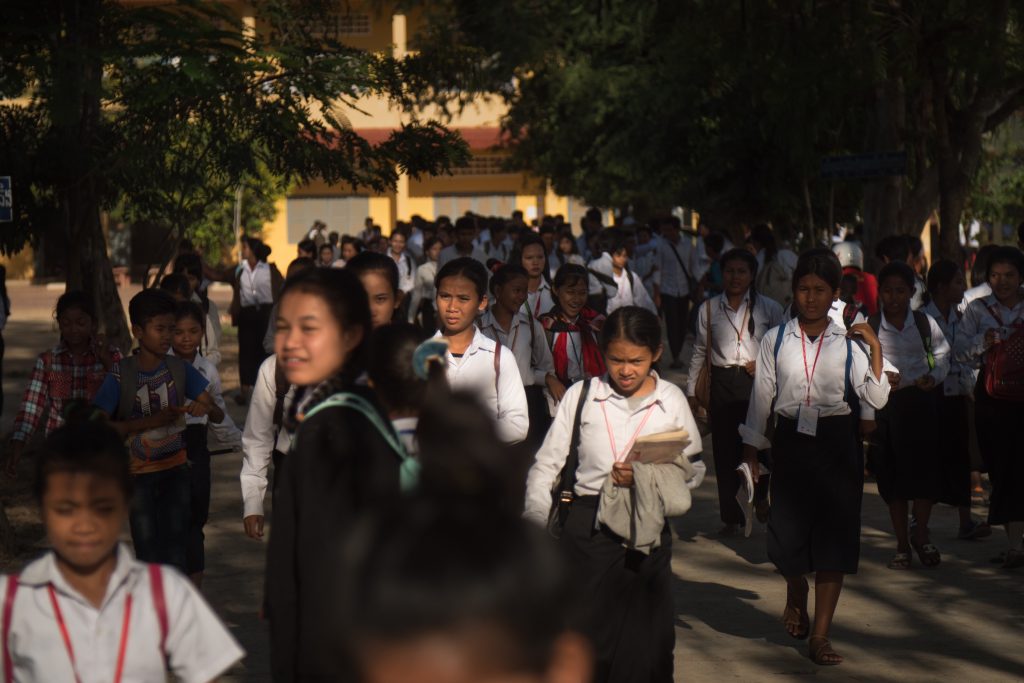
Vannat Nuom: The Study on Youth Preparation and Self-orientation towards Future Employment
The Cambodian government introduced a reform for higher secondary education in 2011 that allows students to choose a study path focusing on science studies or social science studies. This study was aimed to find out if there is a significant difference between male and female students in the selection of study path. 100 students from 10 upper secondary schools in Battambang province, Cambodia, were interviewed. The results showed that female students were more likely to choose the science study path whereas male studentes were more likely to choose the social science study path. Future career opportunities was the most important factor in choosing the study path. The students think about the job markets available and its benefits in local context first, and their own interest and self-competence come second. This study provided important information for FCA that works in the CGC (Career Guidance and Counselling) in Cambodia.
Ghebrecal, Alem, Demoz, Berhane,
Posti-Ahokas, Hanna & Karvinen, Ikali (Eds): Learning together: collaborative action research to improve practice at the Asmara Community College of Education
The attitudes that learners bring with them to Asmara Community College of Education (ACCE) constitute an important foundation for learning to become teachers. The purpose of this study is to investigate the interest of grade 11 (G11) and 12 (G12) learners at the ACCE towards the teaching profession. The study uses both empirical data and literature review to explore the perception of learners towards the teaching profession. Data were collected through open-ended interviews and questionnaires from purposely selected sample of learners and their educators. The study reveals that learners at the ACCE have low desire to become teachers although they joined the college to become teachers upon their own choice. The findings are expected to prompt educators to closely observe their own practices to exemplify and perform approaches that promote the interest of learners towards the teaching profession.
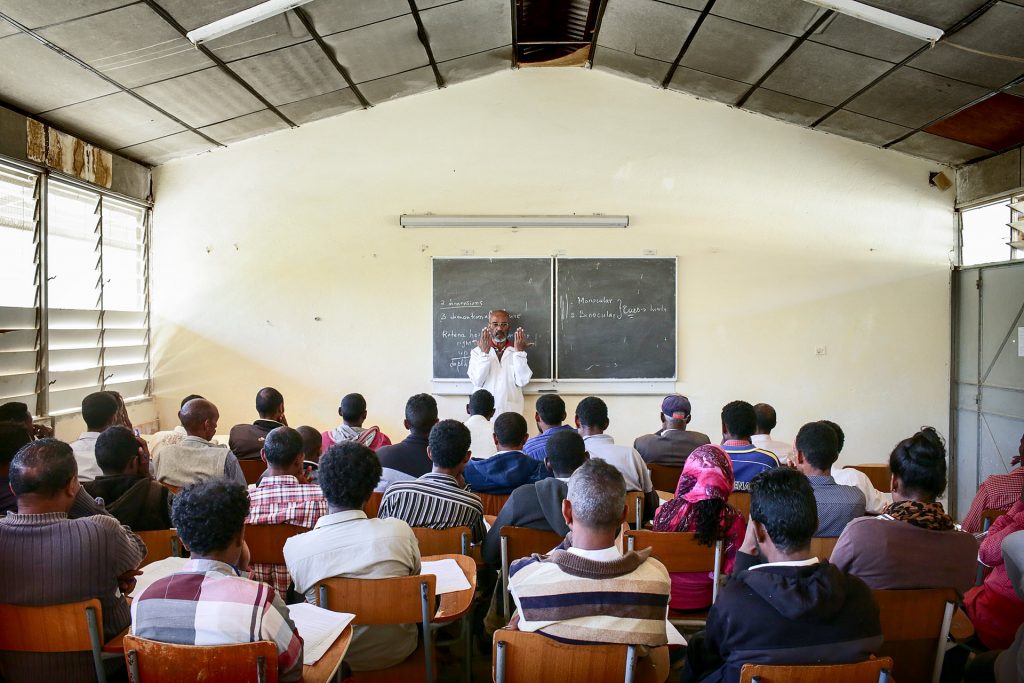
Karvinen, Ikali, Gosh, Saraswati, Russom, Yohannes, Shumendi, Awet & Mulugeta, Dejen: Factors Leading to Student Teachers’ Success or Low Academic Performance
This study aimed to investigate factors that lead to student teachers’ success, or on the other hand, to low academic performance. It focused on four major thematic areas, including 1) Study planning and time management, 2) Relationship with others, 3) Resources, and 4) Motivation and status of the teaching profession. The study took place at the Eritrea Institute of Technology, College of Education, in Eritrea.
A participatory qualitative research design with thematic focus group discussions was used. The analysis was conducted as a deductive content analysis where the four themes were leading the analysis process. The study shows that study planning and time management is one of the key elements in successful studies. Additionally, access to relevant study resources facilitates learning. Relationships with the other students, with the teachers and family, either support or negatively affect academic performance. This study recommends that teacher education institutions should study the reasons for their students’ low or high academic performance more. This requires a multi-stakeholder approach, meaning engagement and cooperation of parents, teachers, students, and governmental and non-governmental administrations.
Lepistö, Rauli, Gisselquist, Rachel M. and Ojala, Jussi: Embedded Assistance: Finn Church Aid’s Secondment in Somalia
This article explores the experience and impact of ‘embedding’ a highly skilled staff member of a non-governmental organization (FCA) within a local government agency. It is a unique case study of FCA’s experience with secondment in Somalia in 2012 where an FCA peacebuilding specialist Mahdi Abdile worked as part of the Transitional Federal Government’s Ministry of Constitutional Affairs and Reconciliation to support the implementation of a transition roadmap. The article introduces the background and the challenges of the arrangement thoroughly and evaluates its impact on the Somali state building process. It also discusses ‘embedding’ as a means to support fragile states. The case study draws on interviews, e-mail correspondence, FCA’s institutional memory and written documents.
The article argues that the seconded FCA staff member contributed in significant ways to the process of implementing the transition roadmap. Further, it argues that the arrangement was an overall success, and it offers a model that could be built upon in the future. It allowed FCA to promote some of its guiding principles, especially rights based approach and local ownership in aid operations. The article compares the arrangement with other international initiatives outside of Somalia, such as The Scott Family Liberia Fellows.
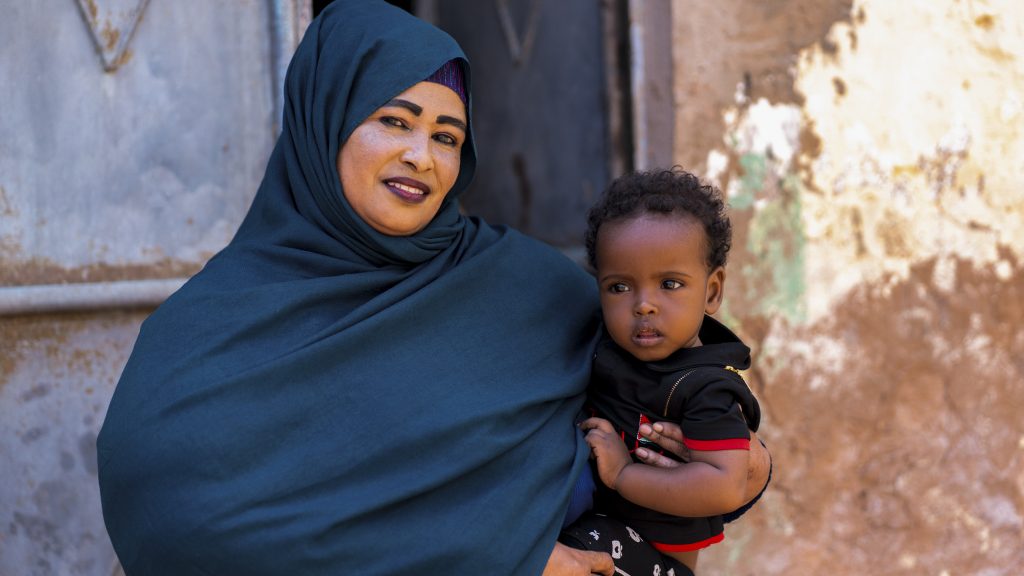
Lepistö, Rauli: Building a Piece of Peace Finn Church Aid’s Outreach and Reconciliation Project in Somalia. CMC Finland Peacebuilding and Civilian Crisis Management Studies
In 2010 Finn Church Aid (FCA) initiated a Somalia Outreach and Reconciliation Project in cooperation with United Nations Political Office for Somalia (UNPOS). The project, which was initially perceived to be a project which would increase UNPOS’ outreach towards Somali society by bringing the UNPOS closer to the Somali traditional and religious leaders (the Elders), grew out from its initial objectives substantially. Rather than supporting a stabilising element working somewhere at the grass root level, the project gave the Elders the tools to become a genuine actor in the Somali peace dialogue, giving them a chance to offer their peace mediation expertise for the Somali people at the national level.
This article tells a narrative from this project. By this the article wants to relay a telling case study how a relatively small non-governmental organisation can give an ample contribution on peace efforts on larger context. While presenting the narrative, the article also presents some of the challenges that FCA faced during the project. The article also illustrates some of strengths that FCA had available during the project. It also aims to shed light to the approach that FCA used in this work, which may be of good use for peace professionals elsewhere.
Giordano, Nicola: Action for Hunger (in progress). TVET study: Inclusion of refugees and their transition to the world of work
This study is a collaboration of UNHCR, ILO, GIZ and FCA to identify good practices related to the Technical Vocational Education and Training (TVET) programmes available for refugees, internally displaced people and their host communities, and their transition to the labour market. The study reviewed TVET systems and programmes implemented by national ministries, private sector actors, development agencies and non-governmental organizations across five countries: Ethiopia, Jordan, Kenya, Sudan and Uganda.
The data were collected through key informants from the five countries and a thorough review of relevant and available programmatic information and secondary literature. The study identified solutions for refugees and host communities to overcome barriers to TVET, success factors regarding access to, retention in, and completion of TVET programmes, conditions for an effective transition to the labour market and programmatic approaches that are successful, innovative, and scalable. The report gives global recommendations for making TVET programmes accessible and inclusive.
Almeghari, Hani and Ojala, Jussi: Achieving Sustainable Development in the Least Developed Countries – Towards LDC-V: Structural barriers to SME-ecosystem development in LDC’s – Regulatory Frameworks, Technical Capacities and Access to Finance.
This study focuses on the crucial role of Small and Medium sized Enterprises (SME’s) play in economic growth and job creation. It argues that developing and supporting SME ecosystems in the Least Developed Countries (LDC’s) will help the LDC’s to develop economically and to meet the Sustainable Development Goals (SDGs). It provides recommendations to the national governments of the LDC’s, to the international development partners and institutions, and to the private sector of the LDC’s for creating a well-functioning SME ecosystem. It seeks to contribute to the upcoming Programme of Action (2021 – 2030) in the UN LDC process. The research focused especially on two countries, Somalia and Uganda. The empirical data were gathered through an internet-mediated questionnaire and semi-structured online interviews with local and international entities active in the private sector development sphere.
Sorila, Adam: Organizational Identity in Finnish Non-profit Development INGOs
The study focused on FCA and another Finnish development organization (Fida). It used Organizational Identity theory to explain how the organizations have developed into what they are today, and how their organizational identities have been affected by outside demands like professionalisation. The research method was a multiple case study. The data consisted of interviews of the organizations’ personnel and the published materials of each organization. The data were analysed using qualitative comparison of identity traits and organizational theory. The key finding of the study was that despite big changes in its historical value base and shifts in the definitions of development and its purpose, FCA has thrived to meet the original purpose of the organization and has become the largest development actor in Finland.
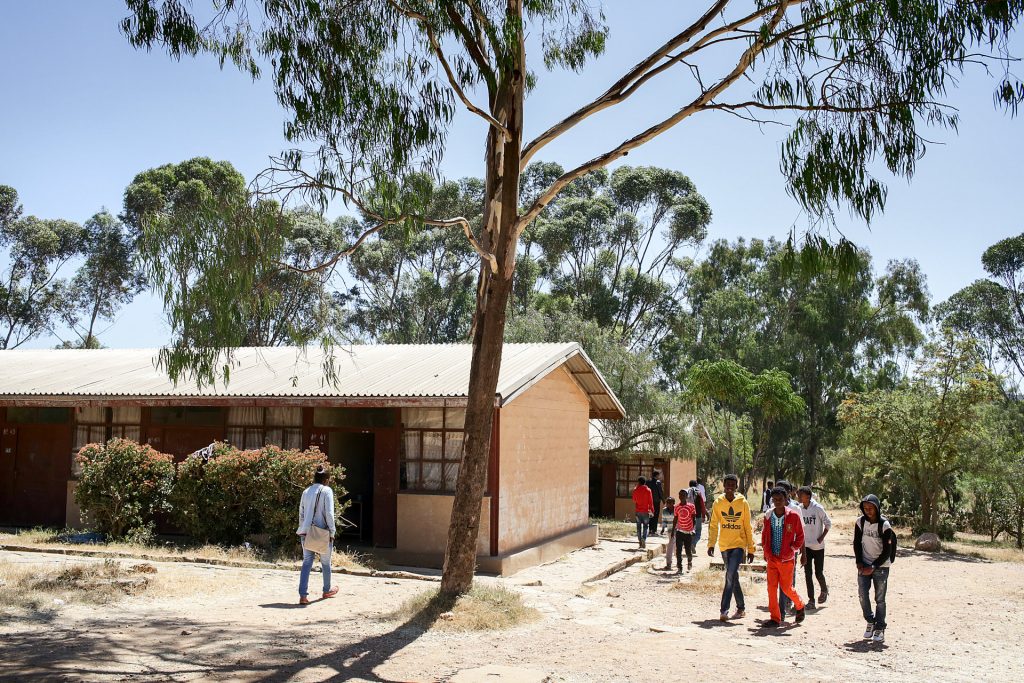
Learning Together
This unique collaborative action research project was carried out at the Asmara Community College of Education (ACCE), the only teacher education college in Eritrea that trains primary school teachers. The publication consists of 16 articles on sub-projects, or studies, conducted by the educators at ACCE as part of the research project. The topics vary from infrastructural development and student admission to the promotion of active learning. Most of the studies are strongly linked with basic educational activities in the institution.
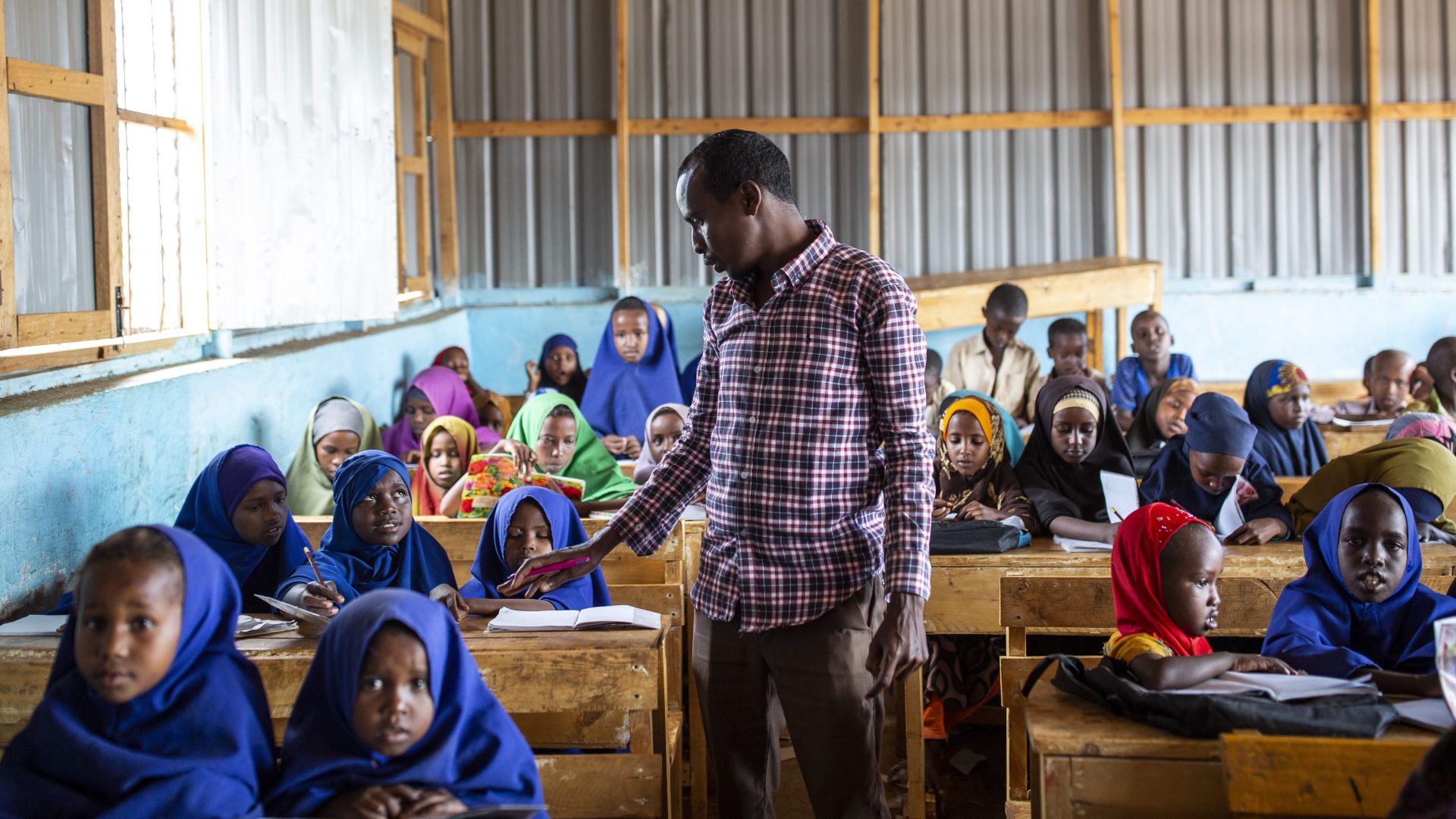
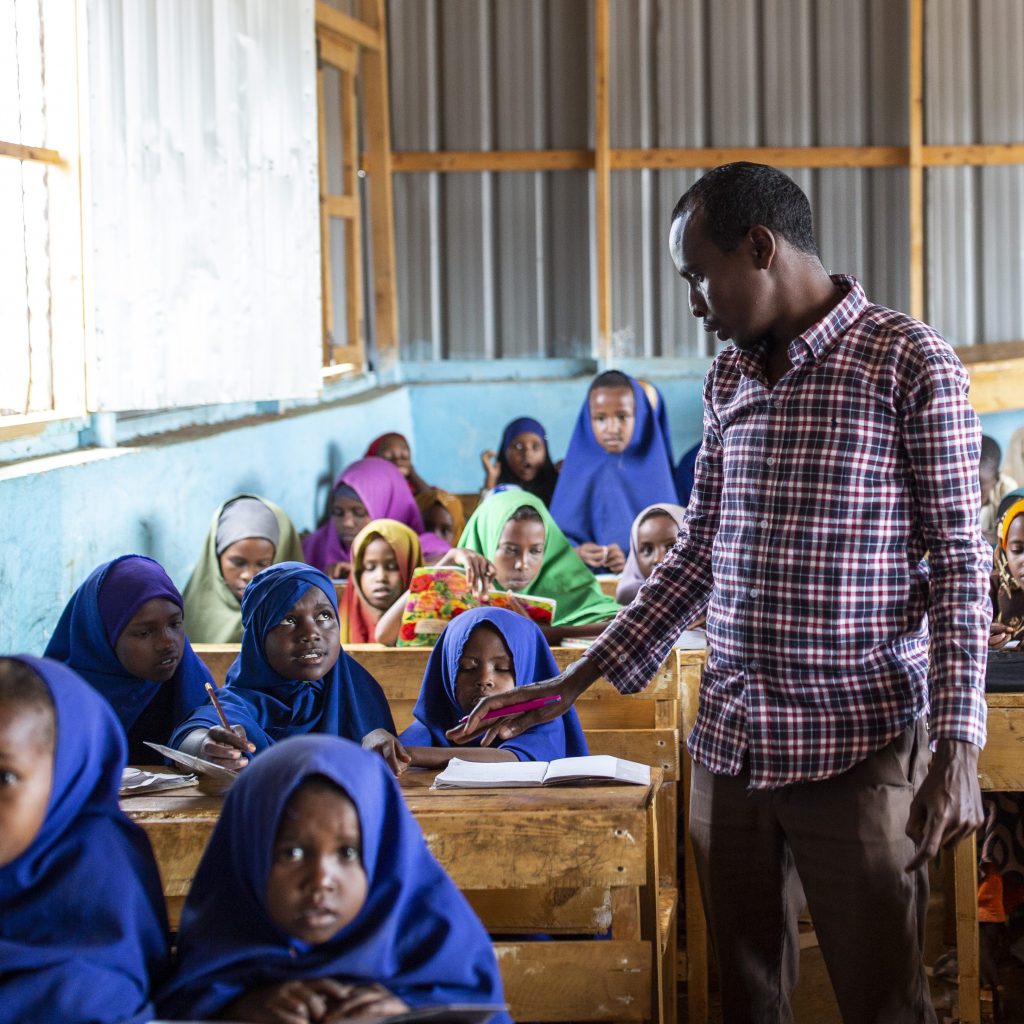
How does FCA hope to benefit in research
— FCA is a professional organization that aims at responding to complex humanitarian and development questions in fragile contexts. Our approach is based on various different kinds of knowledge. For examples, communities and people in our target areas are best placed to tell us what they need, what works for them and what they want. We often collect this information through various kinds of needs assessments and baseline studies.
However, development actors and researchers often collaborate. Combining data from various locations, information of interventions and what worked and what didn’t might help when similar interventions are planned to another context. Here academic research often comes to a picture: we want to find out with well elaborated questions, with standardized tools and with scientific methodologies data and interpretations that might not only apply to one, but several contexts, or that helps us to understand the phenomena better.
Although FCA is not a research institute, we use research in various ways, for examples to make sure that our decisions are based on best available evidence or to make sure that our approach has proven impact. And other way round too: Being biggest development and humanitarian agency in Finland makes us interesting partner for research institute. For instance, our work naturally produces information that is not only interesting, but sometimes unique for researchers and helps them to further develop, with us, our work
What is FCA’s role in research co-operation
— During the past years we have seen the growing interest on research in our field. For examples, in the funding calls donors asks us to show how our intervention is based on earlier research or if we have plans and possibilities to scale the interventions up and use the similar or modified approach in another contexts.
Additionally, academia is growingly interested to partner with civil society since it is considered to be one of the main pillars of academia and to respond to question how academic institutes can be impactful for the surrounding society. There is a growing consensus that complex, so called “wicked problems” can only be solved in multi-party co-operation where various different types of institutions work together. In practice research collaboration at FCA might take different forms: We for examples offer meaningful study opportunities for Master students and PhD candidates or partner with academic institutions in wider scale consortia studies.
What kind of research is FCA interested in?
— Since FCA is not a research institution as such, we are extremely strict that the research needs to align well with our global and country strategies. In practice this means that we welcome research collaboration that in a way or another supports our main mission to assist people in need in the contexts where we work. Often this means applied research which refers to practical solutions that are field-oriented and solves challenges in our societies.
However, it is not always that simple: development questions are complex and research might not be able to solve problems immediately but helps to build evidence that at some point might be able to address wider scale challenges, such as reasons of inequalities in society or other structural challenges. FCA welcomes also multi-professional co-operation in research field: for examples, we don’t only allow students from obvious related fields, such as development studies, to commission their thesis at FCA, but want to brieng students and research with different backgrounds together to solve these complex questions. Sometimes it might be student from economics who is better positioned to study something than someone else.